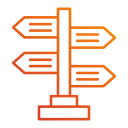Diving into Technical Specializations in IT Education
Chosen theme: Diving into Technical Specializations in IT Education. Step confidently into focused IT tracks with clarity, inspiration, and real-world roadmaps. Explore pathways, tools, stories, and decisions—then subscribe to follow our next deep dive and share your questions.

Mapping the Landscape of Specializations
Core domains you can pursue
Software engineering, cybersecurity, data science, cloud computing, networking, AI/ML, DevOps, mobile, and embedded systems anchor most programs. Each domain offers distinct curricula, labs, and career pathways. Tell us which domains excite you most and why.
Emerging niches reshaping curricula
MLOps, edge AI, AI safety, site reliability engineering, AR/VR, green computing, and quantum foundations increasingly appear in electives. These niches often combine classic CS fundamentals with new tooling. Comment if your school already teaches any of these.
The T-shaped professional advantage
Depth in one specialization plus broad literacy across others builds adaptability. Programs that mix foundations, domain depth, and collaborative projects develop this profile. Subscribe to get our checklist for planning a T-shaped learning journey this semester.

Cybersecurity learning arc
Start with operating systems, networks, and Python. Progress into security fundamentals, cryptography, secure coding, and incident response. Cap with a blue-team lab or red-team project. Share which security labs or competitions you want us to review next.
Data science progression
Begin with statistics, linear algebra, and programming. Advance through data wrangling, machine learning, and model evaluation. Finish with an end-to-end project that cleans, models, and deploys. Subscribe for a printable course sequence and reading list.
Cloud and DevOps route
Foundations in Linux, scripting, and networking lead to cloud architectures, containers, orchestration, and observability. Culminate with infrastructure as code and reliability engineering labs. Comment if you prefer AWS, Azure, or Google Cloud for practice.
Tools, Languages, and Labs That Matter
AI/ML essentials
Python, Jupyter, NumPy, pandas, scikit-learn, and PyTorch or TensorFlow form the foundation. Add MLFlow for experiment tracking and Docker for reproducibility. Tell us your favorite dataset and we’ll suggest a specialization-ready project idea.
Networking and security hands-on
Wireshark, nmap, Burp Suite, Metasploit, and Suricata bring network and security concepts alive. Simulate environments with VirtualBox or cloud labs. Subscribe for our rotating list of safe practice targets and capture-the-flag resources.
Full-stack and platform stacks
TypeScript, React, Node.js, PostgreSQL, and Prisma build modern apps. Add Docker, GitHub Actions, and Kubernetes to demonstrate platform skills. Share a link to your repo and we’ll feature standout student stacks in a future post.
Stories from the Lab: Real Journeys
Maya’s pivot to cybersecurity
Maya loved puzzles but felt lost in broad CS. A network security lab clicked; she joined a CTF team and documented every hackathon. Her incident response capstone won a faculty prize. Comment if you want her study routine template.
Arun’s data detour
After struggling in pure theory, Arun tried a data storytelling course. Visualizing city transit delays became an obsession. He built a deployment pipeline and landed a co-op. Subscribe to read his blog post on honest project retrospectives.
Lucía’s leap into SRE
Lucía discovered SRE in a chaos engineering workshop. By reproducing outages and writing runbooks, she found joy in reliability. Her internship pipeline cut deployment times by 40%. Share your SRE questions for an upcoming Q&A.



Security incident response simulation
Design a simulated breach, write detection rules, and produce a post-incident report. Include timelines, indicators, and containment steps. Share your findings; we’ll feature standout reports and offer peer feedback opportunities.
End-to-end data product
Ingest public data, clean it, build a model, and deploy an API with monitoring. Highlight ethical considerations and model limitations. Subscribe to receive a project template with milestones, prompts, and evaluation criteria.
Infrastructure as code challenge
Provision a secure, scalable web service using Terraform, CI/CD, and observability. Track costs and reliability metrics. Comment with your architecture diagram, and we may unpack it in a follow-up architectural critique.
Decision Framework: Find Your Fit
List moments when you felt most engaged in class or labs. Note whether you prefer building, defending, analyzing, or optimizing. Share your reflections and we’ll suggest two tracks to explore deeply next week.
Do you thrive with structured syllabi or self-directed labs? Some tracks favor labs; others emphasize math or systems thinking. Subscribe to get our learning-style matrix matched to IT specializations.
Study job postings, alumni outcomes, and internship conversion rates. Look for skills repeated across roles. Comment where you’re located and we’ll publish a region-specific specialization snapshot in an upcoming update.




